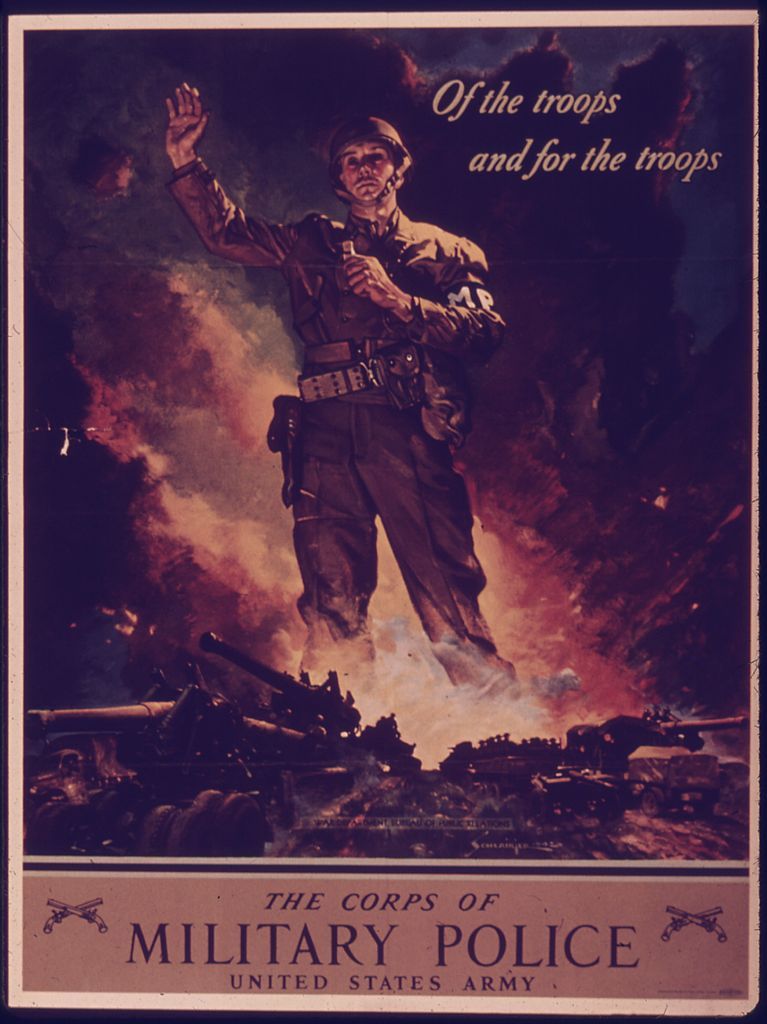CNN Hires Ex-Cop Who Defended NYPD's Mass Violation of Muslim Civil Rights
John Miller recently slipped into apparent perjury about mosque surveillance before the City Council, but he's trustworthy enough for CNN. PLUS: China accuses the NSA of data theft

Edited by Sam Thielman
AT A NEW YORK CITY COUNCIL hearing this March, John Miller, the NYPD's since-departed deputy commissioner for intelligence and counterterrorism, defended the honor of the department from Brooklyn councilwoman Shahana Hanif, who brought up its infamous post-9/11 suspicionless surveillance on the city's Muslims. Noting that the department has yet to admit wrongdoing, Miller insisted before the council that there was "no evidence" that the police inappropriately placed "spies in their mosques who were trying to entrap people."
It was an astonishing claim, because as Miller knows very well, there is in fact no factual dispute that, after 9/11, the NYPD did far more to harm Muslims in the region than the already-enormous First Amendment violation of mosque infiltration, of which there is ample evidence. (Its overreaches weren’t limited to the city.) There were multiple civil rights lawsuits, a formal disbandment of the NYPD's Demographics Unit, a Pulitzer Prize for the AP team that exposed it. For a recap of all of what the NYPD did and continues to do to Muslim communities, see my second Little Pakistan piece from last fall, which focuses on Bobby Khan.
I say Miller knows all of this very well because while he was deputy commissioner for intelligence, the city settled three civil-rights lawsuits over the Muslim surveillance. Miller specifically knows the NYPD placed both officers and informants in city mosques, because the city agreed to pay damages to, among others, mosques. The reporters who broke the story, Adam Goldman and Matt Apuzzo, wrote in their book Enemies Within that an internal NYPD document from 2006 described the political and social affiliations of "more than 250 mosques" in the area.
The testimony wasn't a momentary departure from reality for Miller. Last fall, for the 20th 9/11 anniversary, Miller spoke to WNYC and admitted only to what the station described as Muslim fears of police infiltration. "There was a time when there was a level of paranoia when everybody felt spied on, and there were so many rumors going around that people didn’t know how to separate truth from fact [sic],” Miller told WNYC. To hear Miller tell it, the NYPD's voluminously documented civil rights abuses were merely "paranoia" on the part of the people whose license plate numbers the department recorded outside their mosques while they prayed. Miller made sure to note, as he would in his March testimony, that the police made "no admission of wrongdoing." He repeated that talking point in 2018 shortly after the city settled Hassan v. City of New York, one of the civil-rights suits that sought to redress the civil rights violations. ("A police department not acknowledging wrongdoing is akin to a congressman's 'No comment,'" eponymous plaintiff Farhaj Hassan noted to the Daily News at the time.)
In 2016, two years into Miller's tenure as NYPD chief of intelligence and counterterrorism, the NYPD's inspector general took a look at the department's record of compliance with court-ordered guidelines for investigating political activity. Reviewing a sampling of cases from 2010 to 2015 (that is, both before and early into Miller's arrival), it found that, in more than half of them, "investigations continued even after approval of the operation expired." When the NYPD extended a preliminary inquiry, it articulated no explanation of suspicion of wrongdoing in "[o]ne hundred percent of Preliminary Inquiry extensions." Usage of undercover officers and informants, meanwhile, "continued after approval expired more than half of the time."
Shortly after Miller's testimony, Councilwoman Hanif urged Manhattan District Attorney Alvin Bragg to investigate Miller for perjury. "The signal it sends is that Muslims are not seen in this city, that basically, Muslims are invisible in this city," Hanif told the Daily News. Even Eric Adams, the cop-turned-mayor, said Miller and the NYPD were out of line!
MILLER'S CV IS A TESTAMENT to the permeability of the boundary between journalism and the Security State. He's zig-zagged between being an NYPD spokesman, a notable ABC correspondent—even interviewing Osama bin Laden for Nightline in 1998—a counterterrorism official for the LAPD, director of public affairs for the FBI, a CBS correspondent and then NYPD deputy commissioner, a job he left last month.
On Tuesday, after Miller rewrote history to absolve the NYPD in an official record, CNN hired him as a law enforcement and intelligence analyst. "I’ve worked closely with [new CEO] Chris Licht and share his editorial vision: speed, but not at the expense of accuracy, passion but not at the expense of objectivity,” Miller said in a statement.
[Miller's hiring is also part of a broader shift to the right at CNN, where Trump-loving billionaire (I know, redundant) John Malone has a large stake in new parent company Discovery. Malone is something of a legendary figure in cable television, and his word appears to be law at CNN; Peter Kafka, an extremely reliable reporter, notes in a thorough piece on Malone’s influence that Malone is widely believed to have also had Brian Stelter fired for not being conservative enough. (Execs say that isn’t true, something they would say whether or not it was true.)—Sam.]
A few weeks earlier, in a farewell interview with the local ABC affiliate, Miller peddled the usual cop bullshit about New York being Mordor: "Dirt bikes and motorcycles flying up and down the streets or riding on the sidewalks...while none of those things are particularly putting you in danger, it adds to the psychology of, 'When I look around, I don't feel safe.'" On the one hand, this is nonsense and as a 42-year old native Brooklynite, New York was simply a far more dangerous city when I was a kid. On the other hand, if Miller's right, then defund the NYPD, because the best-funded police department in America has failed at preventing the Hellish Ride of the Dirt Bike. [Not even a press tour in which the NYPD gleefully squished nearly a hundred of them on local TV has ended the dirt bike’s reign of terr—uh, administration of disquiet.—Sam.]
I would simply contend that someone who defended an enormous civil rights violation, to the point of such flagrant misrepresentation before an official body that he’s in danger of a perjury investigation, is not someone who can be counted on to display notable integrity on the air. Nor does it inspire confidence that Miller looks out at New York like Batman grimacing at Gotham.
There is no doubt that CNN can rely on Miller to present law enforcement and intelligence agencies' side of any given story. But, over the last decade especially, journalism has made meager strides toward recognizing the yawning chasm between that perspective and the truth. Miller is sadly typical of a practice other newsrooms are moving away from: outsourcing their Security State analysis to former Security State potentates, such as Miller's new colleague at CNN, Jim Clapper, who as director of national intelligence lied to Congress about NSA bulk surveillance.
"Overall, most major news outlets bring on commentators who represent law enforcement or in some cases [present] the military perspective as providing neutral voices on issues, when in fact these people have definitive perspectives based on the work they've done and the kinds of jobs they've held," said Faiza Patel of the Brennan Center for Justice at NYU Law School and a prominent voice in opposition to the NYPD Muslim spying and other surveillance abuses.
"Generally speaking, promoting law enforcement voices and the like as neutral objective commentators is inaccurate, because obviously these people come to these issues with a perspective," Patel continued. "At the same time, I would acknowledge they have working knowledge others might not, and I can acknowledge there is a value in hiring people who understand how law enforcement works from the inside. They would do well to add to their roster also people who don't come from the law enforcement perspective so they have truly balanced commentary."
WHILE YOU WERE OFF for Labor Day, China accused the National Security Agency of a large-scale data theft centering around the Northwestern Polytechnical University, a military-connected entity that also conducts aeronautic, space and other engineering work. (This description also applies to many U.S. universities.) I have zero idea whether this operation occurred, but it seems like the kind of thing the NSA would do.
According to China's National Computer Virus Emergency Response Center and 360—a Chinese cybersecurity firm that I think the U.S. put on the export-restriction Entity List after 360 accused the CIA in 2020 of a wide-ranging commerce-centric data theft—the NSA's Tailored Access Operations attempted to steal login credentials for Northwestern Polytechnical through phishing emails. This story says that NSA cyber intrusions going back years absconded with "more than 140GB of high-value data." Mao Ning, a new spokesperson for the Chinese Foreign Ministry, blasted the U.S. for "behavior [that] pose[s] a serious danger to China’s national security and citizens’ personal information security. China strongly condemns this and asks the US side to offer an explanation and immediately stop its unlawful moves."
Obviously China does this sort of thing a lot. Mao's protestations ought to be greeted with the same skepticism as similar U.S. pronouncements. I asked NSA to address the Chinese accusations and got hit with a "we do not have anything to offer you on this" stonewall from spokesperson Hannah Mushynski.
Back when we were reporting the first wave of Snowden stories, when we were able to get comments from NSA at all, they typically came with a blandishment that went something like "we don't conduct surveillance for strictly economic reasons." I say something like because my long-dead Guardian email account had those comments and I can't find an example of us printing that line. But seeing the accusation of data theft from a dual-use enterprise like Northwestern Polytechnical, the slickness of that line becomes conspicuous. Where does national-security research end and commercial technological application begin? Answer: wherever the Security State needs it to.
IT LOOKS LIKE SAIFULLAH PARACHA, the oldest man at Guantanamo Bay, may be imminently free. The 75-year old Paracha, whose case we discussed two weeks ago, was approved for release by the Periodic Review Board over a year ago. According to this recent report from Pakistan, the Interior Ministry recently told a Pakistani Senate committee that they're in the terminal stages of securing Paracha's release from Guantanamo.

